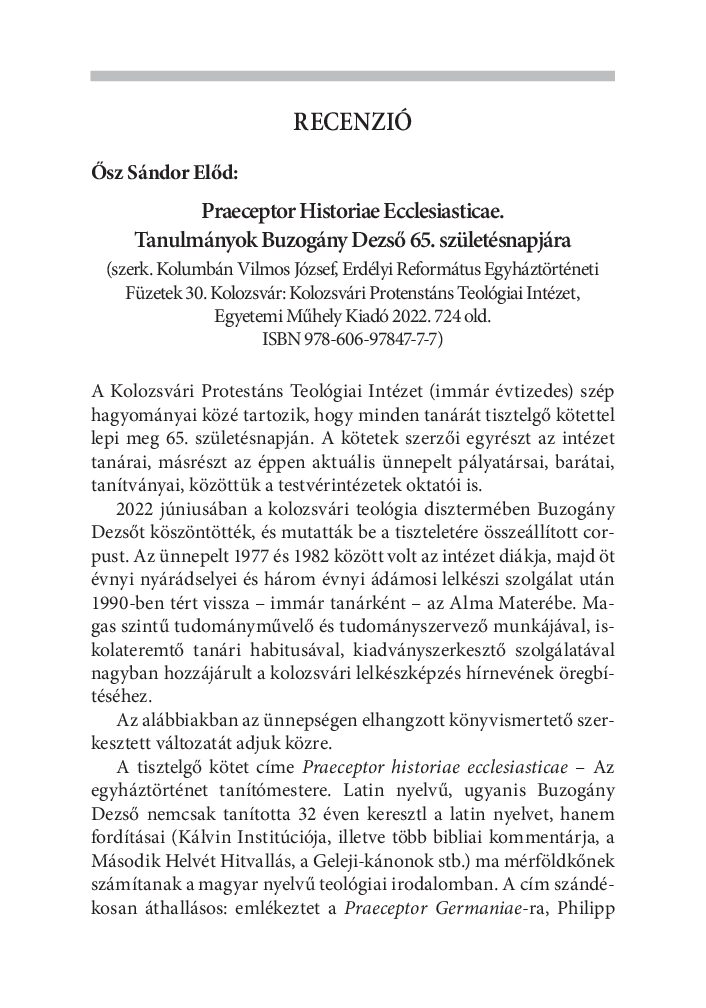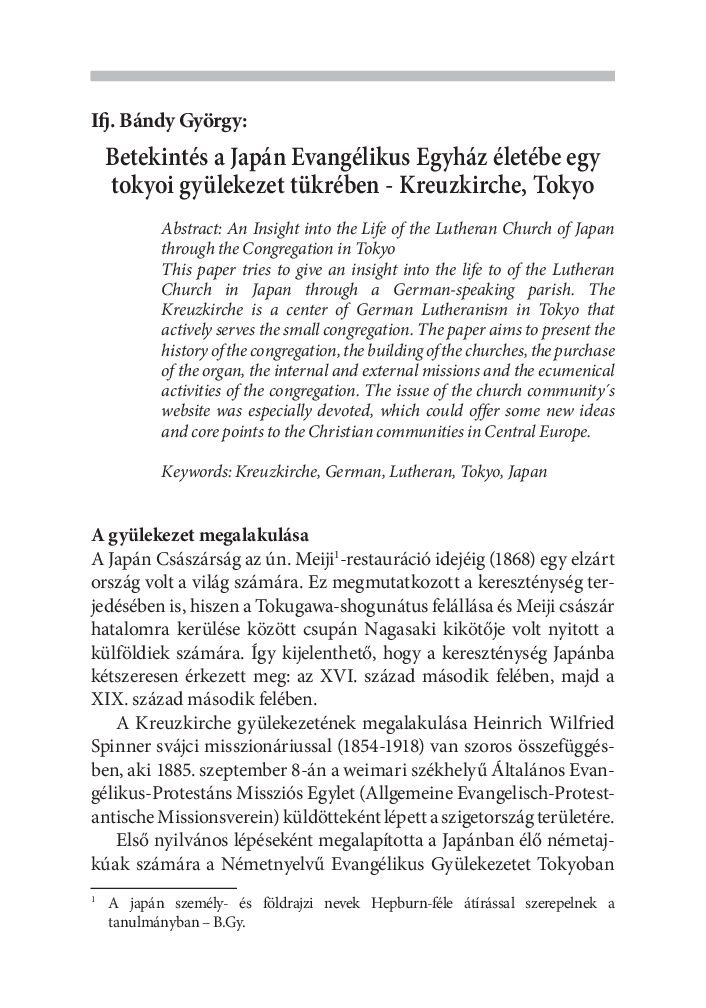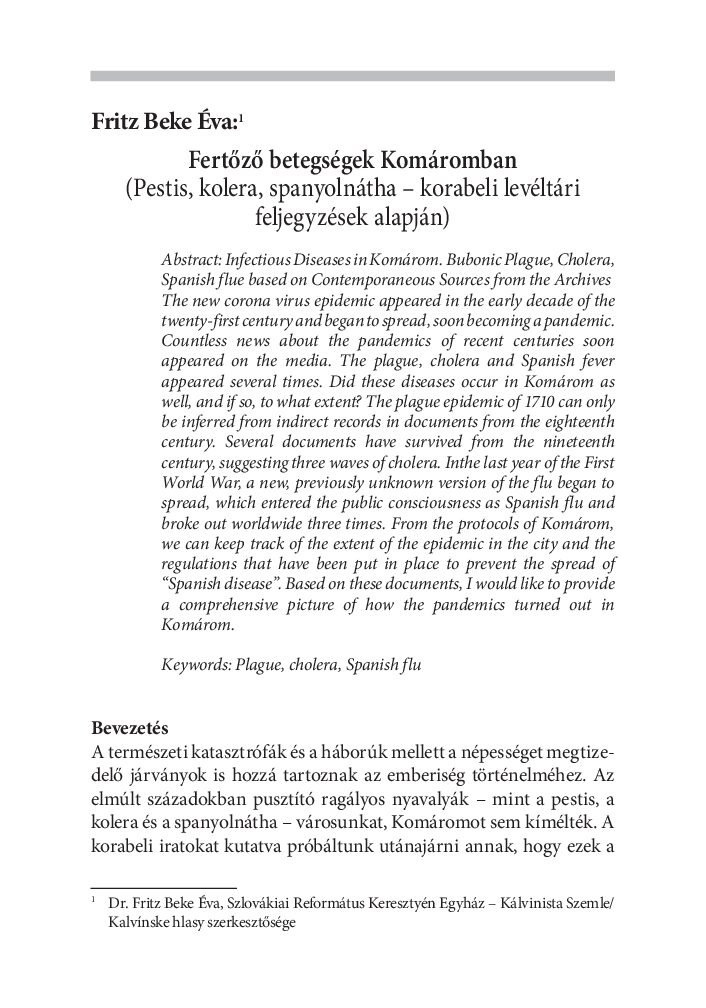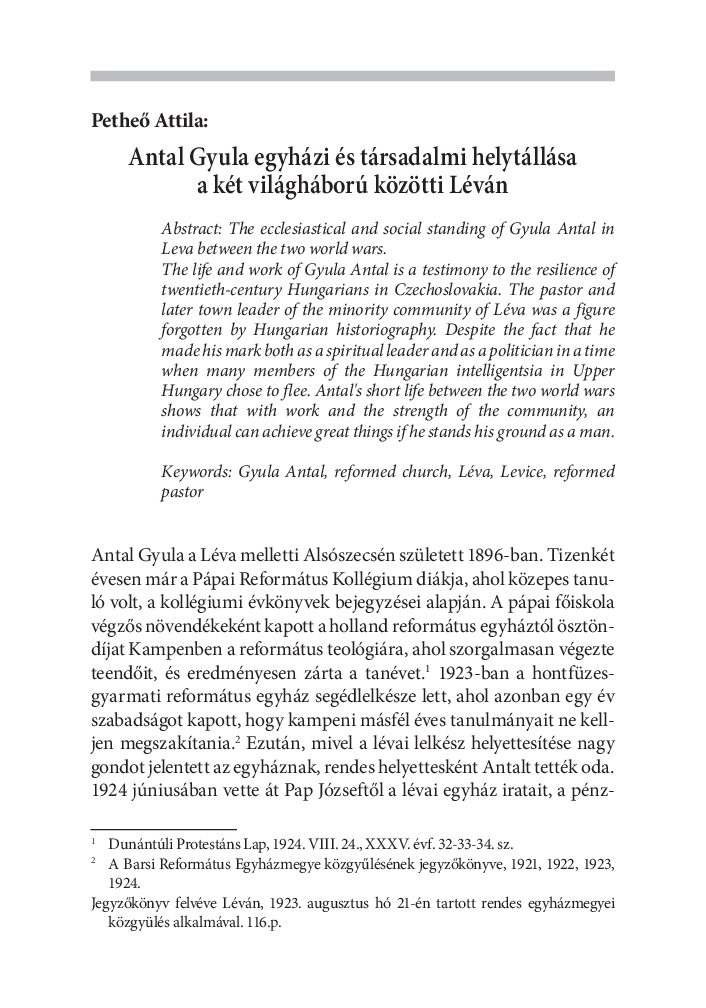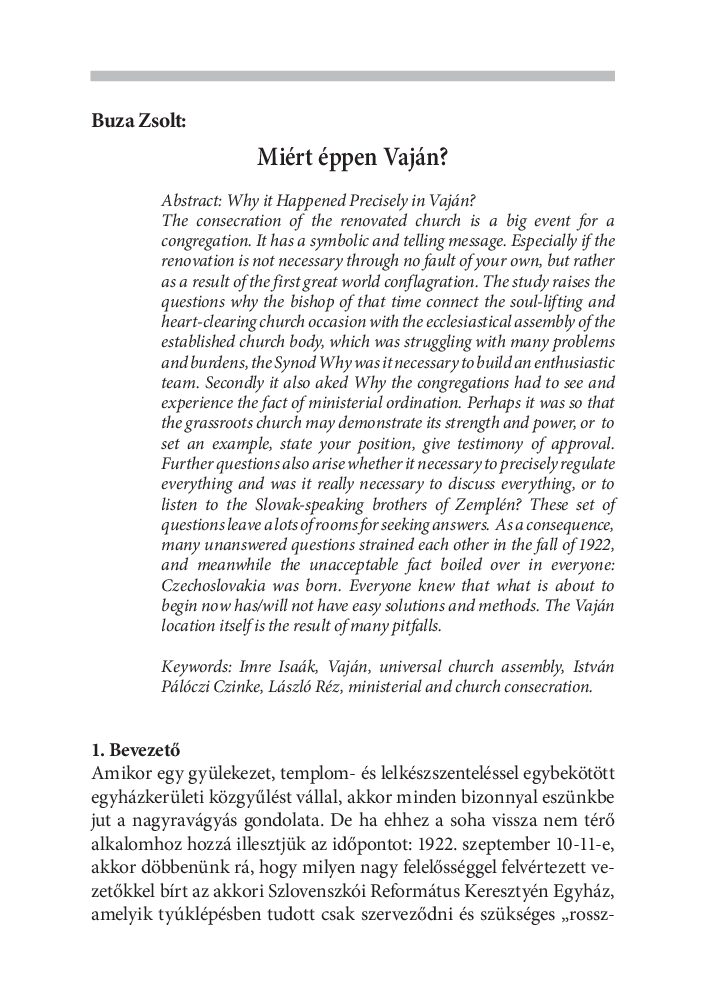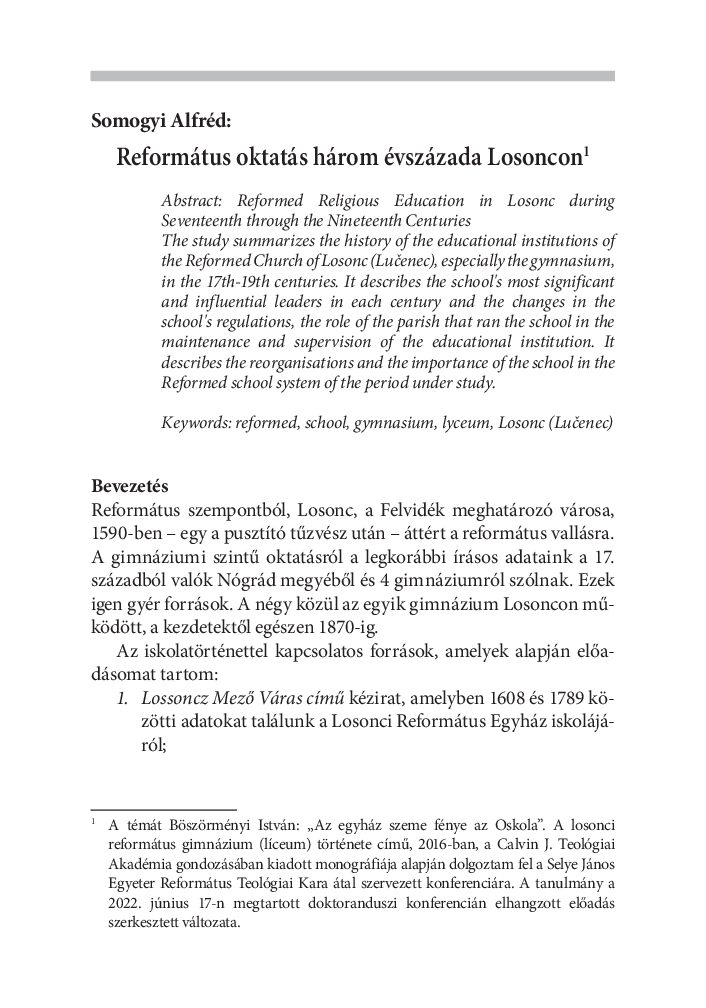Csevár Nóra: Kálvin tanainak alkotmányjogi vetülete
Today’s people are constantly concerned about where we come from, what material some things are made of, how the history and culture of Western Europe developed, or even where the development of the Western European constitution, the idea and the germ of democratized institutions came from. Studying the evolution of the constitution of the Protestant csurcses in a European context, we can see that Luther founded the political ideology of the Reformation with the doctrine of the separation of church and state, while Calvin further developed this doctrine and applied it to the specific organized forms of state power and all the organizational consequences of the division of powers. The Calvinist church constitution (i.e. the Institutio) went beyond the ecclesiastical framework in today’s sense in terms of content, i.e. it also regulated that church administration must be operated in harmony with state legislation and public administration.
The paper argues that the democratic church constitution built on the association of free parishes almost voluntarily gave rise to the concept of the creation and structure of the state. This can be explained by the fact that together with the direct and indirect spread of Calvinism, the conception of the state contract gained ground in many countries especially in England and the Netherlands.
Keywords: János Kálvin, Calvin, constitutional law, Calvinist law, democracy, form of government, governance, Calvin’s influence

